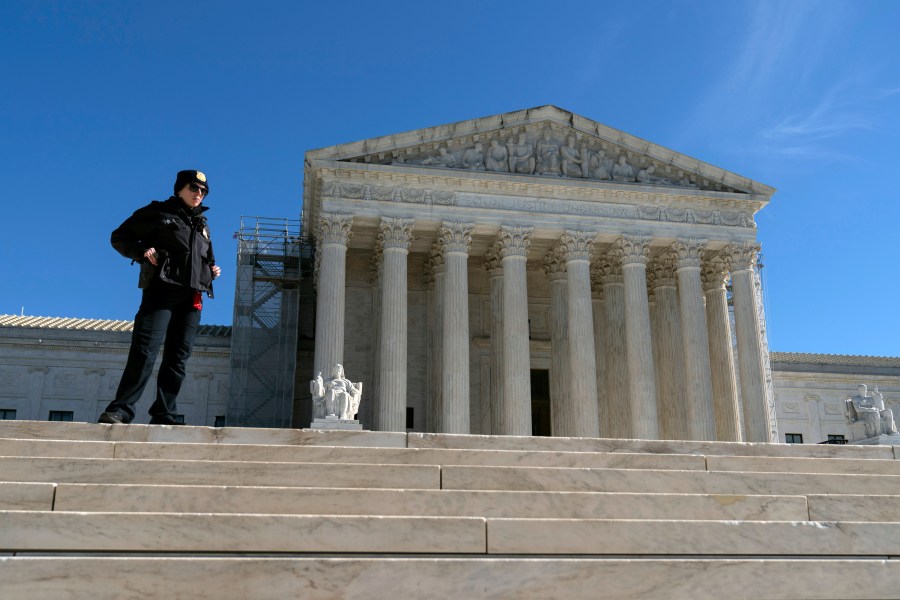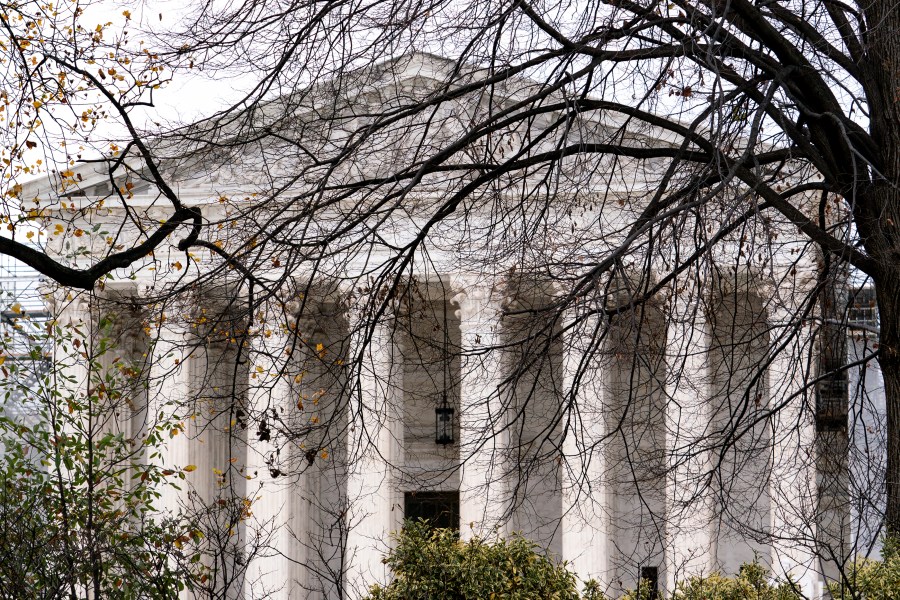(NewsNation) — The Supreme Court is slated to hear three very different cases on free speech next week, and at least one of the cases is poised to forge new ground on First Amendment rights.
On Monday, the court will hear cases Murthy v. Missouri and National Rifle Association of America v. Vullo, and on Wednesday, justices will hear arguments in Gonzalez v. Trevino.
Free speech cases appear to have become more frequent in recent years, Ken Paulson, the director of the Free Speech Center at Middle Tennessee State University, told NewsNation.
But legislation drives the court’s activity, he said, so this is likely a reflection of the “recent emphasis by conservative legislatures on content and free speech.”
Murthy v. Missouri will be the “Super Bowl” of First Amendment cases, Paulson said, as the court will likely set the course on how much the government can communicate with social media platforms.
The other two are more “regular-season games,” according to Paulson, meaning they are more typical cases. NRA v. Vullo deals with whether government officials can tell banks to reject certain groups, and Gonzalez v. Trevino features an elected official who says other local leaders violated her rights.
How much should governments influence social media?
Murthy v. Missouri is poised to set groundbreaking legal precedence surrounding how far the government can coerce or influence social media platforms.
Both the legal and technology sectors will closely watch the highly anticipated case.
The suit was brought by individuals who said their social media content was being targeted for censorship when the government asked social media companies like Facebook to combat misinformation about COVID-19, masks and vaccine efficacy, and the integrity of the 2020 presidential election.

Their argument alleges the government used public statements and threats of regulatory action to influence social media companies to suppress content, which violated their First Amendment rights.
The case is highly consequential, Paulson said, and will set far-reaching guidelines on how far the government can or cannot go.
“There’s no question that the government can communicate information to social media companies,” he noted. “The question is, how far can they go and encourage social media companies not to carry some content? When does it cross the line?”
He said the court will have to decide the importance of free speech in relation to the government’s duty to preserve public health and protect lives.
While most legal experts anticipate the court finding a middle ground that allows government communication without censorship, Paulson said there is no telling how this will go.
First Amendment violations against elected officials
The case of a 72-year-old councilwoman who was arrested and eventually removed from office — which she says was a result of her speaking out against a city manager — will also be heard next week.
Sylvia Gonzalez successfully ran for the Castle Hills, Texas, City Council and was elected as the first Latinx councilwoman in the city’s history in 2019.
But after she spearheaded a nonbinding citizens’ petition to remove the city manager and spoke out against him, the mayor, police chief and other government figures retaliated and launched an attack that led to her arrest, she told NewsNation.
She said they were all closely aligned with the city manager and carried out a series of steps to shut down her dissenting voice.
The events led to her eventual removal from office, which Gonzalez said “robbed” her voice.
She brought a case that included First Amendment violations against government officials.
“I want people to know that they have a right to speak up. They have a right to run for office, and they shouldn’t be afraid. Everybody’s afraid,” Gonzalez said.

Gonzales is represented by the Institute for Justice, and her case has gotten support from civil rights groups like the American Civil Liberties Union and the Foundation for Individual Rights and Expression.
First Amendment rights around the Second Amendment
While most people think of the Second Amendment when they hear the National Rifle Association, the pro-gun rights group will be going before the Supreme Court regarding its First Amendment rights next week.
The NRA sued the superintendent of the New York Department of Financial Services after it said she told banks and insurance companies to “sever ties” with the gun rights group because of their political stance after the Parkland school shooting in 2018.
The group said the superintendent promised lenience to certain insurers if they would stop doing business with the NRA, which it claims amounted to a violation of its right to free speech.
The Supreme Court will now determine whether the First Amendment allows government regulators to threaten retaliation against businesses that work with a controversial advocacy organization.
The case has made for some unlikely alliances as the ACLU is set to defend the NRA.
“While the ACLU disagrees with the NRA’s advocacy, we are proud to defend its right to speak,” David Cole, the ACLU’s legal director who will also argue the case, said in a statement earlier this year.
“Public officials cannot be allowed to abuse their regulatory powers to blacklist an organization just because they oppose its political views,” he also said.
